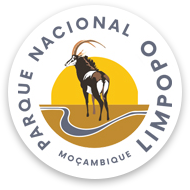The well-trained noses of the wildlife contraband detection dog unit at Maputo International Airport, Mozambique, has stopped a wildlife trafficker in her tracks.
On 10 November 2020, Mozambique Police, with the support of the National Administration for Conservation Areas (ANAC) Canine Unit, apprehended a Vietnamese citizen who was attempting to smuggle wildlife products to southeast Asia.
The suspect, who was in the process of boarding a Qatar flight, was questioned by the police after tracking dog Sasa indicated the presence of prohibited products in her luggage. Further inspection revealed 127 lion claws, 36 lion teeth and 4.3 kg of rhinoceros horn. According to ANAC experts, the seized products were derived from the illegal slaughter of at least 10 lions and 4 rhinos.

The products were hidden amongst clothes and chocolates and cookies with the clear aim of confusing the detection dogs and deceiving authorities. The smugglers’ tactics were no match for the specially trained handlers and carefully selected dogs that have, since birth, undergone intensive training to detect the smallest amounts of wildlife contraband, like ivory, rhino horn dust and pangolin scales.
The detection dog unit was established in 2018 through a partnership between Peace Parks Foundation and the African Wildlife Foundation in support of ANAC. Maputo International Airport in southern Mozambique is a wildlife trafficking hotspot, with large quantities of illegal wildlife moving through it onwards to the east.
Since the deployment of the dog unit, trafficking at the passenger terminal was for the most part brough to a halt as not many dared to challenge the dogs’ detection skills. In August 2020 the unit’s work was expanded to the cargo terminal for the dogs to inspect not only passenger baggage but also containers.
According to Article 62 of the Law on the Protection, Conservation and Sustainable Use of Biological Diversity (Law 5/2017 of 11 May), the possession, transport and smuggling of prohibited wildlife products can result in a 16-year prison sentence.
The criminal activity of poaching related to the smuggling of these animals and their products is most prevalent in the provinces of Maputo and Gaza along the border with South Africa where more than 24 Mozambicans have been detained and sentenced to severe penalties this year.
The canine unit operates in close collaboration with the Police of the Republic of Mozambique , the National Criminal Investigation Service (SERNIC) and Customs services.

